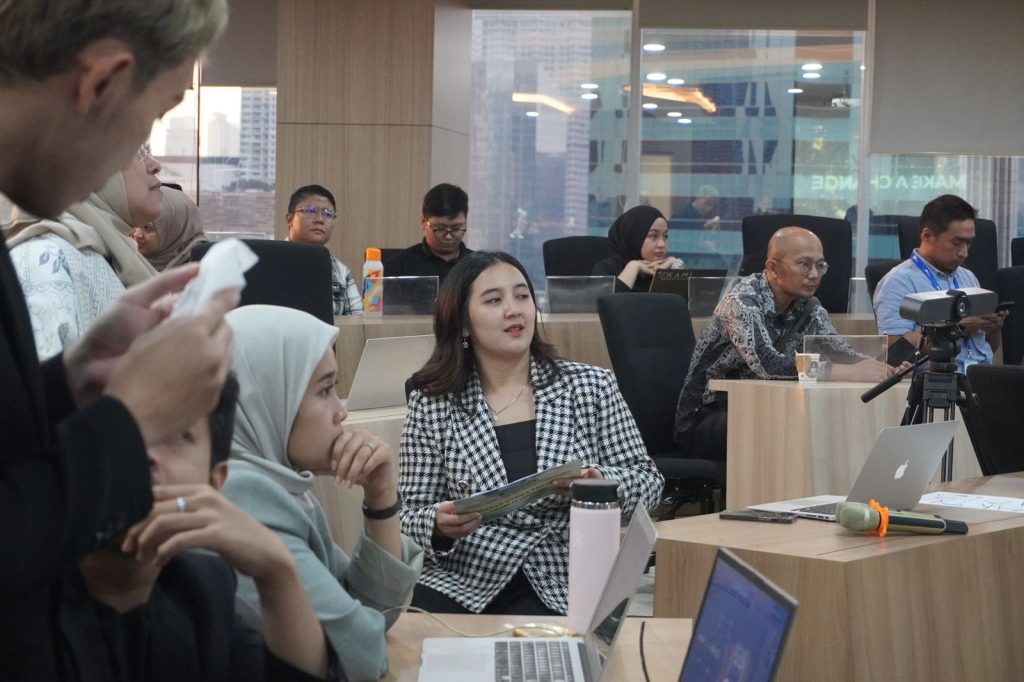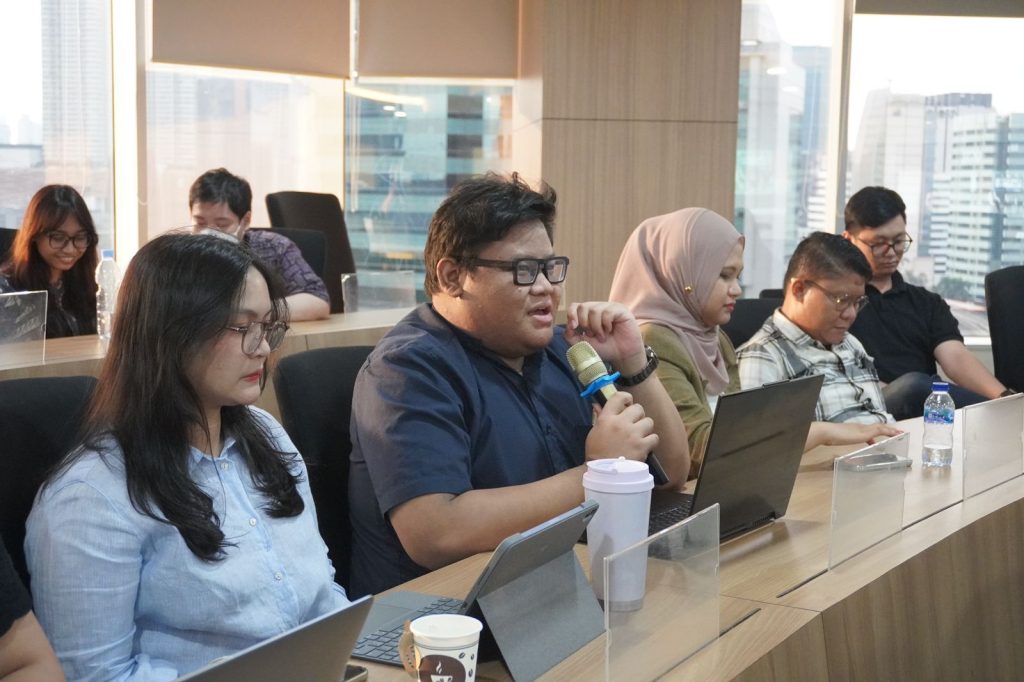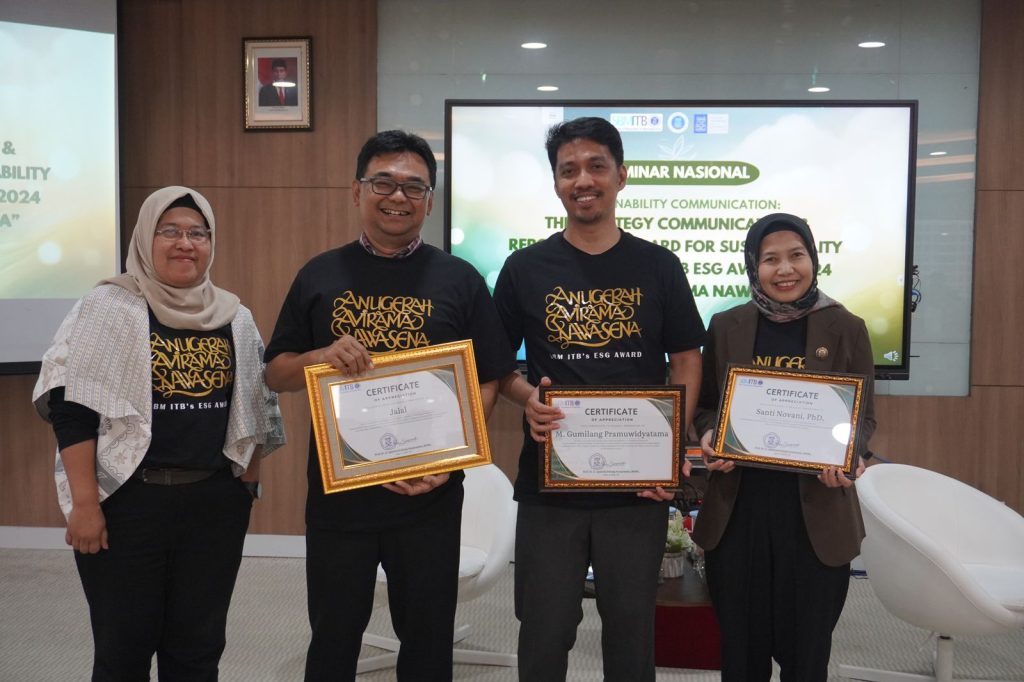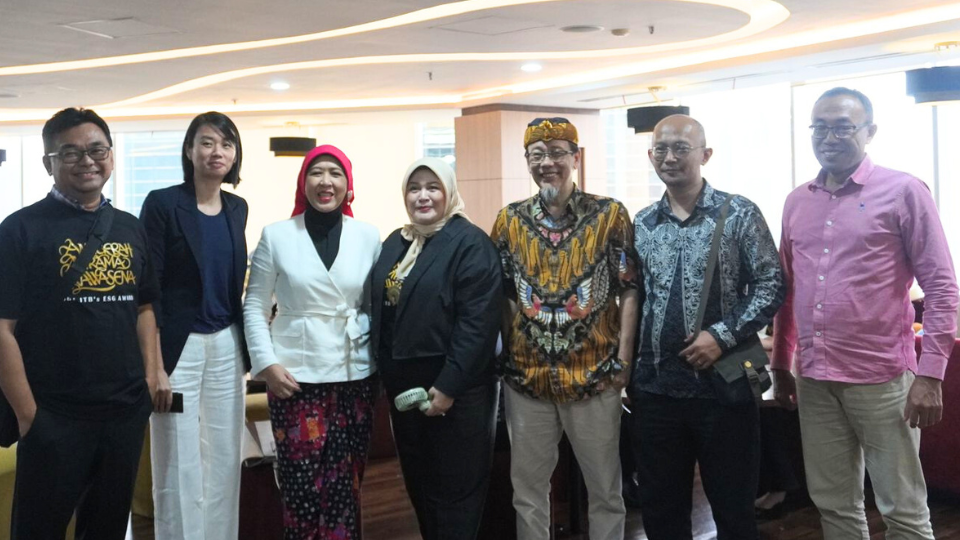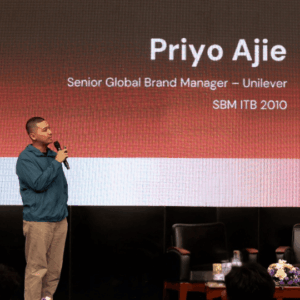In response to rising concerns about the increasing phenomenon of greenwashing in the business sector, the SBM ITB organized a seminar titled “Sustainability Communication: The Strategy, Communication & Reporting Standard for Sustainability” on Thursday (6/27). The seminar was held in a hybrid format, combining online participation via Zoom with in-person attendance at the ITB Jakarta Campus.
To avoid greenwashing, it is crucial to emphasize transparent and responsible sustainability communications. The event featured several experienced speakers, including Dewi Suyenti Teo, Country Manager of the Global Reporting Initiative (GRI) in Indonesia; Jalal, Chair of the Indonesian Social Investment Advisory Council; and representatives from various companies.
In the seminar, Dewi highlighted the role of Global Reporting Initiatives (GRI) as a broad framework many large companies use to measure their sustainability efforts. She explained the urgency of reporting, which includes compliance with regulations, the company’s global value chain role, contributions to achieving the SDGs, risk management models, relevance and accuracy of data for decision-making, stakeholder demands, and access to green financing.
Jalal spoke about authentic, sustainable communication to avoid greenwashing practices, emphasizing the importance of ethical practices. “Companies have an urgency to integrate ESG into their business operations by building the right foundation, strengthening the core, and the management team. ESG is a top-down approach, and top-level management is responsible for accountability,” said Jalal.
Foodbank Bandung also stressed the importance of data management in its non-government operations. M. Gumilang, founder of Foodbank Bandung, demonstrated how to maximize stakeholder involvement through trust and openness.
“At Foodbank Bandung, we also use a scientific approach in collecting and calculating data, as Mr. Jalal mentioned about data stewardship,” said Gumilang.
Tegar, Head of Sustainability at BRI, began the sharing session by providing an overview of ESG implementation in the banking industry. They started compiling sustainability reports in 2013, even before the regulations were enacted. “Stakeholders, defined as customers and employees, are our main priority,” said Tegar.
Mohammad Taufan, Sustainability Strategy Management Dept Head at PT Astra International Tbk, discussed how Astra has successfully created sustainability initiatives. Astra manages 283 subsidiaries and is currently involved in emissions, energy, and the transition to net zero emissions. “Astra Triple-P is a sustainability strategy roadmap, and there are ten aspirations in sustainability that engage stakeholders and amplify their voices,” said Taufan.
Chair of ESG SBM ITB, Melia Famiola, closed the national seminar by discussing the Avirama Nawasena Award, the SBM-ESG Awards, which will take place this year. This year’s SBM-ESG Award is being held with several stakeholders, including the Emil Salim Institute, the ITB SDGs team, and the media. The SBM-ESG Awards create momentum for companies and individuals to showcase their contributions to sustainable business practices.
